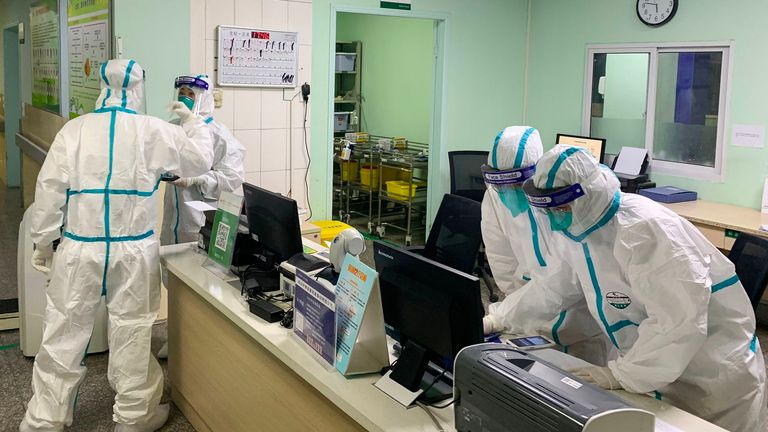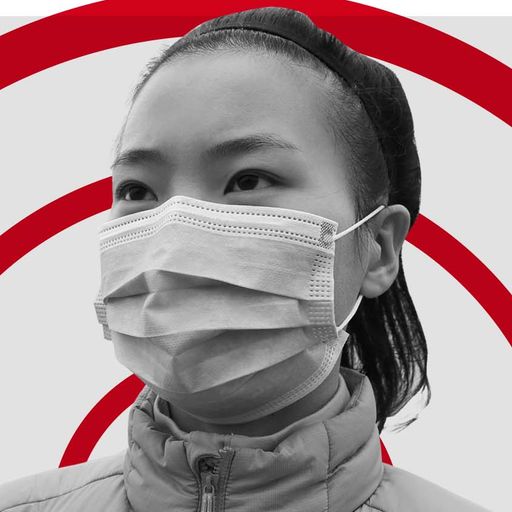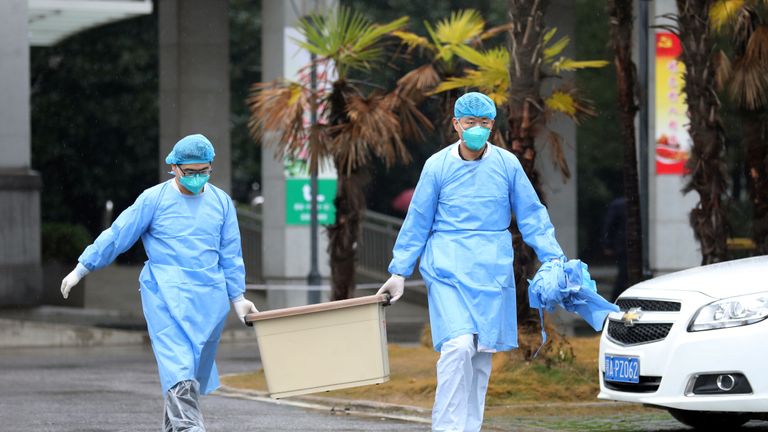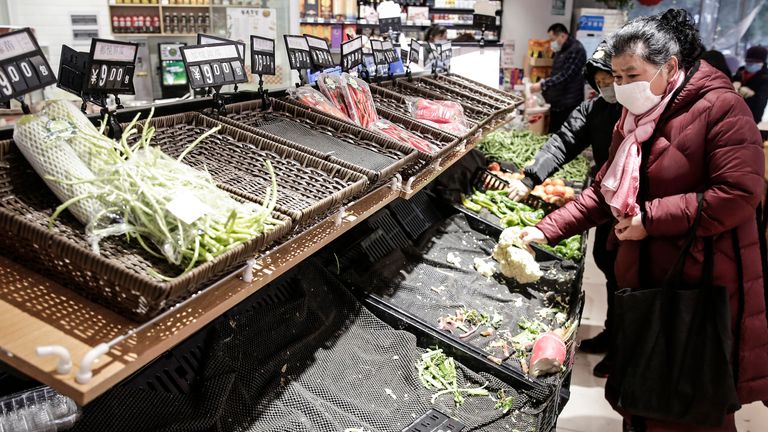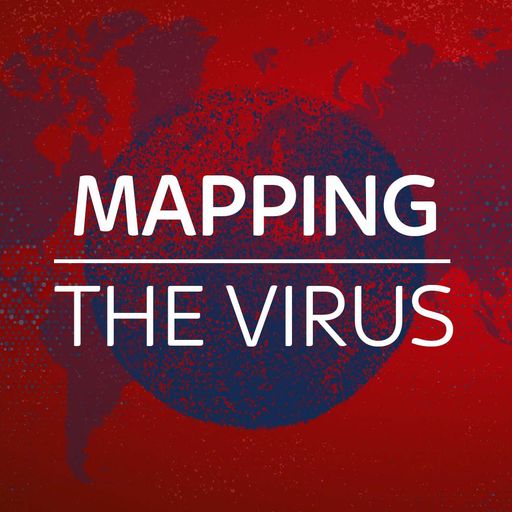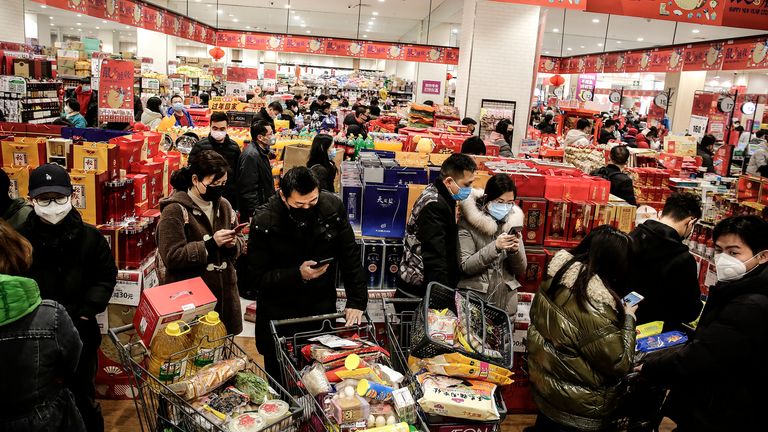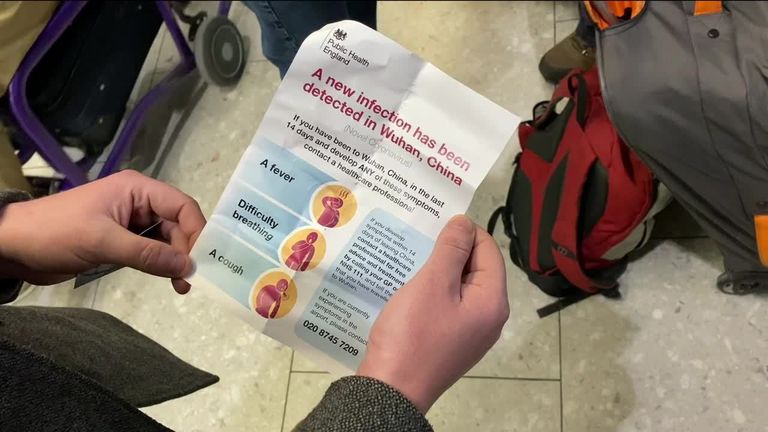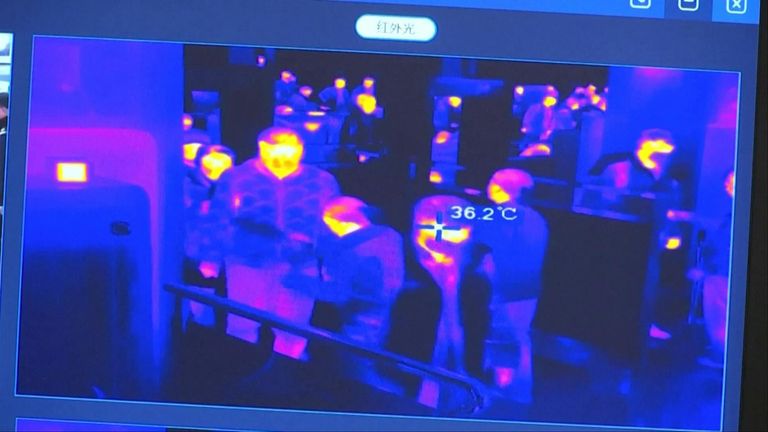Coronavirus 'may become global emergency' as 18 deaths confirmed
More than 600 cases have been reported in China and several other countries as authorities work to prevent a global pandemic.
Friday 24 January 2020 00:31, UK
Three cities in China have been locked down in an effort to contain the spread of the deadly coronavirus - but the World Health Organisation (WHO) says it is still too early to declare a "global health emergency".
Eighteen people have died and more than 600 cases have been reported as authorities around the world work to prevent a global pandemic.
An 80-year-old patient with coronavirus died in China's Hebei province on Thursday - the first confirmed death outside Hubei province where the outbreak began.
Dr Tedros Adhanom Ghebreyesus, director-general of the WHO, said: "Make no mistake, this is an emergency in China but it has not yet become a global health emergency.
"It may yet become one."
He added that the WHO's emergency committee had been divided over whether to declare a "public health emergency of international concern" and said China had taken appropriate measures to contain the new coronavirus' spread.
Chinese authorities have moved to lock down three cities, with a combined population of more than 18 million people, in response to the virus.
In the city of Wuhan, considered the epicentre of the outbreak, the airport and train station have been shut down, while ferry, subway and bus services have been halted.
The city's 11 million residents have been ordered to wear masks in public places and at work.
People were pictured stocking up on fuel and there were empty shelves in supermarkets ahead of what could be weeks of relative isolation.
Similar measures are being enforced in the city of Huanggang, which has a population of six million, as bus and train services were suspended and cinemas and internet cafes were told to shut.
Meanwhile, nearby Ezhou has shut its train stations, and the Chinese capital Beijing has cancelled major public events including two new year temple fairs, as part of the action to control the outbreak.
The emergency committee on the new coronavirus considered that it is still too early to declare a public health emergency of international concern given its restrictive and binary nature.
Sky's Asia correspondent Tom Cheshire, who has been in Wuhan, said: "What had previously been a quiet, tense atmosphere in Wuhan, is now a lot edgier.
"Now the city, cut off, must cope on its own."
Millions of people in China are preparing to travel domestically and abroad for its lunar new year celebrations this weekend.
Overnight, the Chinese government had released a breakdown of the then 17 people known to have been killed by the deadly virus.
All but two of the 13 men and four women were aged over 60. Ten of the victims had a pre-existing condition.
There is no vaccine for the new viral infection, which can cause pneumonia and can be passed from person to person.
The symptoms include fever, coughing and difficulty breathing.
Though the origin of the virus has yet to be identified, the WHO has said the primary source is probably an animal.
China has also stepped up its co-operation with the organisation, which is holding an emergency meeting to determine whether the outbreak of the new coronavirus constitutes a global health emergency.
The virus originated in the central city of Wuhan in Hubei province at the end of last year and has since spread to 25 provinces across mainland China.
Four cases have been found in Thailand, two in Hong Kong and the autonomous region of Macau, and one each in the US, Taiwan, South Korea, Japan and Singapore.
Several people in Scotland are being tested over fears they have the illness.
Airports around the world - including in Dubai, Australia and South Africa - have stepped up screening of travellers arriving from affected regions.
Measures are also in force in the UK to guard against the virus, including taking aircraft to a special designated area of Heathrow's Terminal 4.
The Foreign Office is advising against all but essential travel to Wuhan.
:: Listen to the Daily podcast on Apple Podcasts, Google Podcasts, Spotify, Spreaker
Coronaviruses are a large family of viruses ranging from the common cold to severe diseases such as SARS - which killed nearly 800 people during the 2002-03 outbreak.
When a new strain emerges that has not yet been identified, as with the current outbreak, it becomes known as a novel coronavirus (nCoV).
